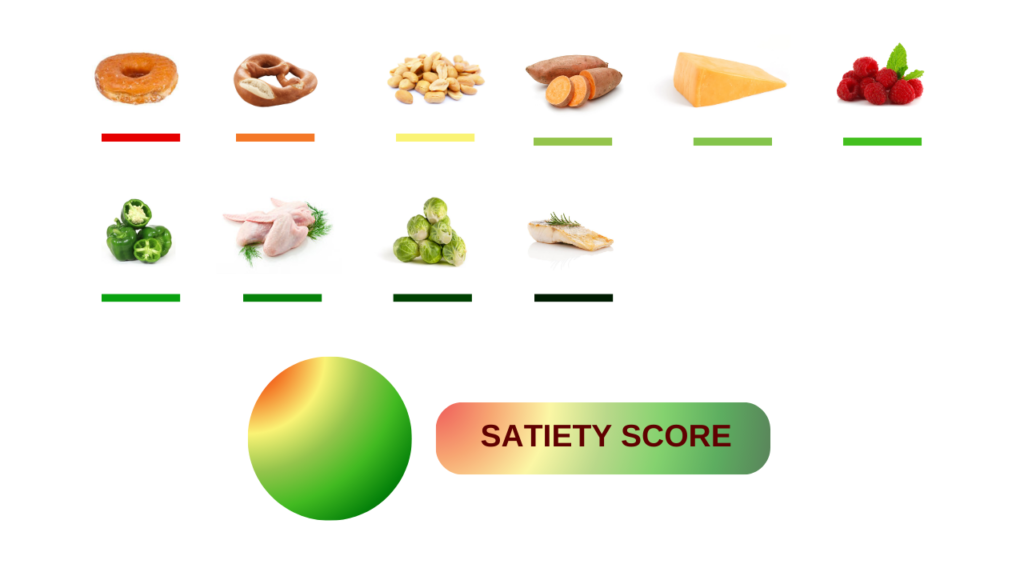
Vanshika
Bariatric Dietician & Content Writer

Concept Of New (Fullness) - Definition & Meaning
Weight loss surgery also called bariatric surgery is basically a surgical procedure that alters the digestive system and helps promote 1 deposit casino nz.com weight loss. There are several types of bariatric surgery that work either by reducing the size of the stomach or by rerouting the intestines.

Bariatric surgeries mostly follow 2 main methods which are –
- Restrictive – This makes the stomach smaller & helps to slow down the digestion. Here the amount of food the stomach can hold is reduced and so is an individual’s food intake.
- Malabsorption – Here the digestive tract is shortened or altered which causes food to bypass portions of the tract which limits the nutrients and calories absorbed by the body.
Mixed – This procedure does both malabsorption and limits the food intake.
Thus basically this surgery offers good weight loss along with less hunger, more fullness, blood sugar control and diabetes improvement.
Which means now you have better satiety levels which helps you reduce your calories naturally and thus lose weight in a healthier way!
There are many different hormones at play when it comes to food consumption and your body’s method of regulating it. But the hormone that helps you feel full and satisfied ( often one of the biggest factors in the success or failure of dieting) is the satiety hormone, or leptin.
After bariatric surgery, leptin production has actually been shown to increase. Obviously, if you have leptin resistance, this won’t make a difference as your body is already producing enough leptin, it’s just not recognizing it. However, if you are one of those people who produces a low amount of leptin, this is a game changer in the way that you feel on a daily basis (and your ability to lose weight).
In regards to leptin resistance, bariatric surgery may have a big role in reducing its effects – by decreasing the hunger hormone ghrelin. Unlike leptin, ghrelin is actually produced in the stomach. During bariatric surgery, specifically laparoscopic sleeve gastrectomy, the size of the stomach is significantly reduced. Because ghrelin is mainly produced in the stomach, ghrelin levels are significantly reduced as well. So, even if your brain is telling your body to produce more ghrelin when it doesn’t need it – it actually can’t. Eventually, your body will be able to regulate its leptin production and bring itself down from leptin resistance. That’s the leptin resistance loop-hole!
After bariatric surgery, you can’t eat as much and you feel full for longer which introduces us to- the concept of new fullness. In fact, many people who were hungry all the time before surgery notice that they have to set timers to remind themselves to eat after bariatric surgery. It’s that powerful, and this is the reason bariatric surgery has such long-term success
Thus it is vitally important to mind your eating habits, minding your satiety and eating habits, and adapting with the fullness signals your body gives to make sure your weight loss graph is not falling down.
This new way of eating may seem overwhelming at first, but overtime, most patients find the guidelines become an unconscious part of their daily routine.
With this comes a new way of eating–
Remember to chew each bite slowly and completely. Do not swallow food until it is smooth. Take at least 20 to 30 minutes to eat a meal.
Eat 6 small meals throughout the day instead of 3 big meals. Do not snack between meals.
Stop eating as soon as you are full.
You will need to drink up to 8-10 cups (2-3 Liters) of water or other calorie-free liquids every day. Follow these guidelines for drinking:
Avoid Drinking water for 30 minutes before and after you eat food. Also, do not drink anything while you are eating. The liquid will fill you up. This may keep you from eating enough healthy food..
Take small sips when you are drinking. Do not gulp.
There are some foods and drinks that are likely to cause adverse reactions and should be avoided throughout the entire post-op period like carbonated beverages, sugar-sweetened beverages, gum, and severely spicy foods often not well tolerated.
You also should limit caffeine because it can irritate your stomach.
Adding multivitamins as per guidance also becomes a compulsory procedure post-surgery.
Remember your calories still count.
Exercise along with massages is mandatory throughout the post-op period for body toning.
Aastha Bariatrics is dedicated to the art of healing to sustain and improve the lives of individuals who are obese or overweight.
It is a center of excellence in bariatric and metabolic surgery. Dr. Manish Motwani has expertise in advanced laparoscopy with 25+ years of experience, is the leading and reputed Best Bariatric surgeon in Mumbai, India.
We have one of the best teams, who are highly specialized in weight loss and obesity. We at AASTHA BARIATRICS take immense care of the patients and also guide them throughout the bariatric surgery procedure. This wellness center is committed to improving the health of the community by providing high quality, personalized health care with compassion, dignity and respect for patients.







